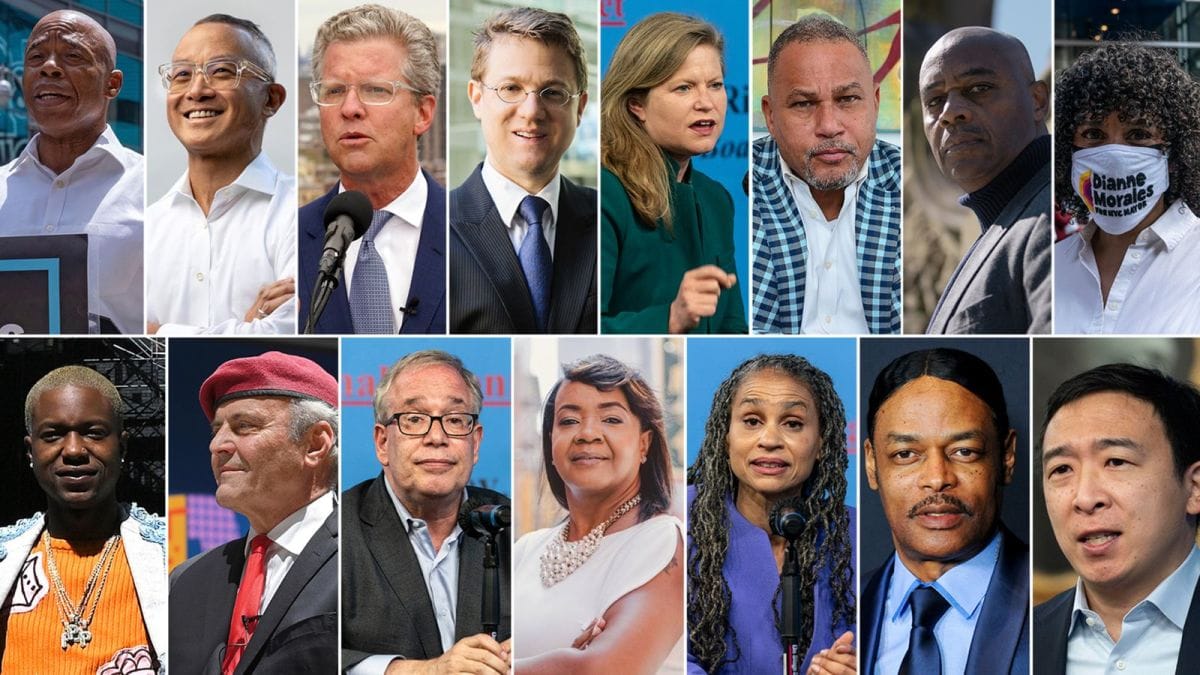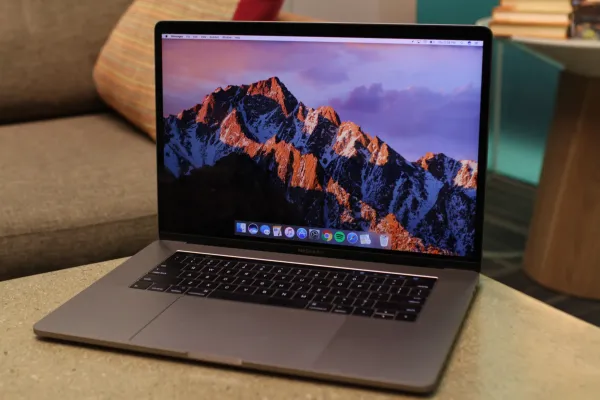Successful Forecasting Retrospective: 2021 NYC Mayoral Primary

Throughout the New York City mayoral race, between January and June 2021, I made multiple predictions about the fate of various political candidates. I think these predictions are my most successful set so far in my forecasting career, greatly outperforming the conventional wisdom and netting >200% ROI on prediction markets (both PredictIt and Polymarket) and personal betting, risking a total of ~$800[1] to win over $2000.
Throughout the election I made money betting against Yang, betting for Wiley, betting against Wiley, betting for Adams, betting against Adams, betting for Garcia, and betting against Garcia - even when I was wrong, I was ahead enough of the curve to take initial profits and switch my position.
I also won several hundred MIPs on Metaculus, helping catapult me to be the 50th place forecaster.
To be clear, most of these ideas are not mine alone - I benefited a lot from talking with @iabvek and many of these ideas came out of our conversations.
Key concepts used
An outside view composed of historical trends from other elections is helpful -- e.g.,
- Stringer flailed like Buttigieg and Beto in the 2020 Democratic Presidential primary (archetype of a white previously moderate politician trying to go hard to the left, but not being the left-most candidate, and thus not really capturing any audience in the moderate or left electorates)
- Yang was frontrunner for a long time but didn’t make it past the finish line like Christine Quinn in the 2013 NYC Mayoral election or Toni Preckwinkle in the 2019 Chicago Mayoral election
- Democratic primaries typically end up as a match between the most moderate candidate vs. the most progressive candidate, with the moderate candidate having the edge - this happened here too (with Adams beating Wiley, though Garcia did edge out Wiley in the ranked choice voting)
- usually the candidate that gets the most first round support wins overall in ranked choice voting (RCV), though that was almost upended in this race.
Thinking of how candidates will capture coalitions, especially along lines of race and education, was important - especially due to ranked choice voting.
Very early on in elections, it can be useful to look to “name recognition”-adjusted net favorability rather than direct polling averages.
In the past looking to fundraising instead of polling (especially among small dollar in-state donors) had been helpful, but this wasn’t useful in this race - Adams and Garcia did not do well on this metric.
High-profile endorsements can often raise candidates’s chances by a lot (more than I thought), but they often aren’t as decisive as people think.
Data for Progress polls are worth paying special attention to, especially in Democratic primaries.
Talking over all your ideas with an informed and engaged friend prior to committing to them is very helpful.
It’s important to make your forecasts probabilistic. Also be careful not to overlearn these lessons as they could very well just be noise.
Prediction: Yang is a strong candidate, but he is ultimately likely to lose
E.g., 28 Jan, 2021 on Metaculus and 29 Jan, 2021 in “NYC Mayoral Candidates: Poked, Prodded, Weighed and Measured”
A lot of the internet thought that Yang had a very strong chance to be the eventual winner of the NYC election. After all, he lead in the polls with a lead of 5-15 points over the next highest candidate and he surged in the prediction markets. I also did not think Yang was a mere “meme candidate” - it looked like he was running a strong and serious campaign, had really strong campaign advisors, and had a good shot at attracting a cross-racial coalition.
However, the outside view was important here - the very early frontrunners in competitive multi-candidate elections lose much more often than they win, and I didn’t see Yang as any exception to this trend. We can see similar patterns in the 2019 Chicago primary where Toni Preckwinkle lead until the final few weeks before ultimately losing to Lori Lightfoot (who polled relatively low early on) and in the 2013 NYC mayoral election where Christine Quinn won until the final few weeks before ultimately losing to Bill deBlasio (who started off in third place in the polls). The rationale here is that voters don’t really pay much attention to the race until the final few weeks, when a lot can change pretty rapidly. Yang ended up being no exception.
Prediction: Stringer is overrated - he is likely to lose
E.g., 29 Jan, 2021 in “NYC Mayoral Candidates: Poked, Prodded, Weighed and Measured”
Scott Stringer was initially doing pretty well in the polls (third place in April with ~10% of the vote) and in prediction markets (second place with ~20% chance to be NY mayor per PredictIt in April). Stringer also seemed to be viewed as the frontrunner among those in the NYC media. However, I saw Stringer as running into the same issues as Pete Buttigieg and Beto O’Rourke in the 2020 Democratic Presidential Primary - (1) positioning himself in the awkward position between centrists (Adams or Biden depending on the analogy) and progressives (Wiley/Sanders) and getting crushed in-between and (2) being too white and failing to build a cross-racial coalition in a majority nonwhite electorate.
Of course, the sexual assault issue came to light in April and put the true end to his campaign, but I thought that he was going to lose well before then.
Prediction: Wiley is underrated
E.g., 29 Jan, 2021 in “NYC Mayoral Candidates: Poked, Prodded, Weighed and Measured”
I always thought Maya Wiley would do well by virtue of being the most socialist/progressive candidate (it seems that usually competitive multi-candidate Democratic primaries end up coming down to the moderate vs. the progressive).
While she started out low in the polls and on the prediction markets, she also had pretty low name recognition to start out, suggesting that people just didn’t really know her yet - something that would change as the campaign got on and Wiley started getting more donors and advertisers. More importantly, among the people who did know her, she had pretty high favorability, giving her high “name recognition”-adjusted net favorability, a metric that I particularly like to use early on in the campaigns. Wiley also did well in fundraising, especially from small in-state donors, which has historically been a good early indicator of support (though ended up being misleading in this race as Adams and Garcia did not perform well on this metric).
Prediction: Adams is very strong and will likely win
E.g., 21 Jun, 2021 on Twitter I thought Adams had a 72% chance of winning
Adams always seemed very solid throughout the race, commanding good polling and a pretty consistent second (or third) place in the betting markets. He seemed very capable of forming a winning coalition based primarily on black voters, and he appealed to the more centrist side of the Democratic party which is usually bigger than people think.
Adams also seemed to be able to form an unusual alliance of people who trusted him to be tough on crime (by virtue of being a police officer and being more centrist in his messaging) along with people who trusted him to reform the police (by virtue of being a black police officer who experienced police brutality in his youth).
Toward the end, Adams was surging in polls and was a strong frontrunner, commanding a large lead over Wiley and Garcia.
Prediction: Garcia is underrated and has a decent chance of winning (and definitely beating Wiley)
E.g., 26 Jun, 2021 on Twitter I thought Garcia had a 20% chance of winning
One thing I definitely got wrong early on was Garcia’s eventual rise, powered by the NYTimes endorsement. I think the NYTimes endorsement remained a dark horse that I should’ve thought more about. I recall being skeptical of endorsements rather early on, but they do make a big difference in city politics.
That being said, on the night of the election when Adams had a big first-round lead and amid lots of people suggesting Adams was insurmountable, it was definitely looking like Garcia had a strong chance of winning in the ranked choice voting despite coming in third in the first round. The reasoning was that (1) Yang’s early elimination was likely to send a lot of votes to Garcia due to their late-breaking alliance and this wasn’t fully accounted for in the polling and (2) once Garcia had these votes and could overtake Wiley, Garcia would also get a lot of votes from Wiley.
I based this thinking on the final Data for Progress poll run from 18 to 20 Jun and adjusted for the alliance announcement that happened during the polling. I trusted Data for Progress because while they struggled a bit with the 2020 General Presidential election they were a very accurate pollster for the 2020 Democratic Presidential primary, suggesting that they may be good at polling democratic primaries in particular. The Data for Progress poll showed a tossup for second place between Wiley and Garcia and I thought this late-breaking alliance would break up that tie and put Garcia in the lead.
I was able to profit off of the market’s eventual discovery of this a few days later and I was lucky to also to be tipped off that Garcia was not doing as well as expected in absentee ballots and get out of the Garcia market position at a huge profit prior to her falling apart (and then make another profit on Adams winning).
-
[1]: Note that I tend to bet smaller amounts than many big bettors / forecasters because I am mainly seeking to use betting to improve my own epistemics and acquire skin in the game than to acquire profits. I don’t want to spend the amount of time I think it would take to properly manage a larger bankroll and I don’t want to expose my personal finances to wild swings.



